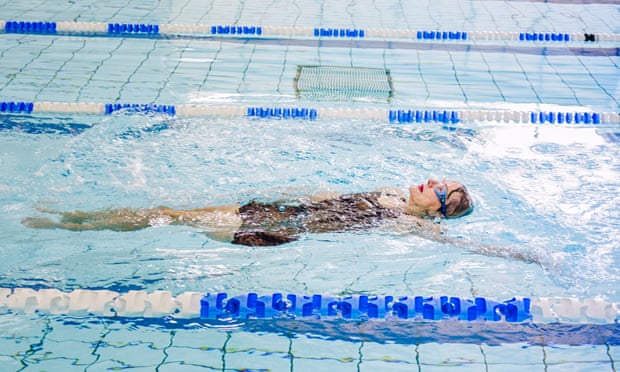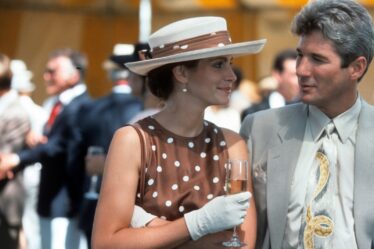
It’s the green slime on the wall of her school swimming pool that Jill Craven remembers best, as she felt her teacher’s hand on her head, pushing her underwater. “You know how time slows? Going under. Watching …” she says.
This was in Palmerston North, New Zealand, when she was five. While her three older siblings could swim half a mile (800 metres) or more, and her peers were doing at least a quarter, Craven “would try anything to get out of lessons”. Her mother was a PE teacher, her father a headmaster. They played tennis and rugby, and in this culture of sportiness Craven could hide her fear of water in proficiency at tennis and netball.
Craven, who moved to London in her 20s to pursue a career in journalism, is adamant that she did not fear for her life when her teacher pushed her under water. Something about the way she insists “I have never feared for my life, ever” suggests that the idea appals her. Instead, what she had was “a lifelong fear of being underwater”. She could get her feet off the bottom of the pool for a quick doggy paddle, but anything more was beyond her.
But eight years ago Craven was treated for breast cancer, and was advised to swim as part of her recovery. Still finding the fear insurmountable, she took up water jogging instead – “like treading water, but moving” – with a flotation aid around her middle. Her lymph nodes had been removed during cancer treatment and she was terrified of getting lymphoedema in her arm, which would make tennis impossible.
In 2019, Craven was visiting family and friends on a four-month trip to New Zealand when the pandemic hit. Her stay extended to more than two years thanks to lockdowns and the sense that “out of everything rotten there is always something good” – in her case the “absolute joy” of spending time with loved ones.
She kept up her water jogging, and one day at the pool in Feilding she saw a group of children having a lesson. It was an indoor pool, nice and warm, and the children were five or six, about the age Craven was when her teacher pushed her under. “I just thought, it’s time to do this,” she says.
“God knows what I looked like. An egg beater,” she continues. “I did five strokes, or six. I was so proud of myself. Then this lifeguard said, ‘If you can do five, you can do 10.’”
He told her how to breathe. A friend gave her goggles, “a turning point”. Her niece Justine, who swims in Wellington harbour, walked beside the pool clapping, and Craven felt she had “won a gold medal”. Justine bought Craven lessons for her 69th birthday. Before long, Craven had swum a length with her face in the water. “I learned to do front crawl. To me, I’d learned to swim.”
When her instructor told her to sit on the bottom of the pool: “It was like going back to being a five-year-old.” She hung on to the stairs as she went down. “But I did it. I stayed there for a few seconds. I didn’t drown. I didn’t panic.”
Now Craven is living and working in south London again but twice a week she swims: five lengths, sometimes 10, with a rest after each.
“There is a great freedom that comes with being older. You lose any embarrassment,” she says. “I just think you need to do things if you can. If you put something off, what are you putting it off until? That’s how my last 10, 15 years have been. I think, I’ll have a go at that. If you can, you must.” The phrase that keeps coming to her is: “Get on with it.”
She must say these words to herself often because over the past decade or so she has also passed her maths GCSE and learned to drive. Maybe she will swim in the sea next, in Oriental Bay in Wellington, out beyond the breakers: “Then I could learn to surf.”


